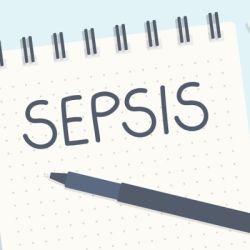Sepsis can have potentially life-threatening consequences. Early recognition is crucial for effective intervention. The role of patients in preventing and identifying sepsis early is vital. However, there is an incomplete understanding of sepsis knowledge among at-risk groups and their ability to recognise sepsis as a medical emergency.
COVID-19 often leads to sepsis, with about one-third of hospitalised COVID-19 patients experiencing sepsis-related organ dysfunction. Vaccination and proper hygiene measures can decrease the risk of infections and the progression to sepsis. Early diagnosis and emergency treatment are crucial for sepsis management, as delays increase the risk of mortality. A significant portion of sepsis cases occurs outside the hospital, emphasising the role of patients in prevention and early recognition. Previous surveys indicate low sepsis knowledge in the general public. There is a need for targeted educational interventions for high-risk groups such as the elderly, individuals with chronic diseases, and those with immune deficiencies. However, there's a lack of survey studies assessing sepsis knowledge among these risk groups. Evidence from other medical emergencies, like stroke, suggests that disease-specific knowledge may have a limited impact on seeking emergency care. Therefore, understanding factors influencing individual competency in applying sepsis knowledge in medical situations, especially in responding to sepsis as an emergency, requires investigation.
A study was conducted as a cross-sectional survey in Germany with 740 participants, stratified by age (<60 years, ≥60 years), specific chronic diseases (e.g., diabetes, chronic diseases, cancer), and region (Berlin/Brandenburg vs. other federal states of Germany). Standardised questionnaires were administered online, by telephone, or face-to-face through a market research institute. The survey assessed sepsis knowledge using questions and evaluated the ability to recognise sepsis as a medical emergency through five case vignettes.
Participants in the study demonstrated limited sepsis knowledge, with less than 50% correctly answering the 36 knowledge-related items. While most participants knew sepsis was a defensive host response to infection (75.9%), only 30.8% were aware that vaccination could prevent infections leading to sepsis. On average, participants identified sepsis as an emergency in only 1.33 out of five case vignettes. Sepsis knowledge was higher among older individuals, females, and those with higher education, as well as those who engaged in more extensive health information-seeking behaviour. The ability to recognise sepsis as an emergency was higher among younger participants, those without chronic diseases, and individuals with higher health literacy, but it was not significantly associated with sepsis knowledge.
Overall, the results showed that risk groups exhibited low knowledge regarding the preventive importance of vaccination and a limited ability to recognise sepsis as a medical emergency. Interestingly, higher levels of sepsis knowledge alone were not enough to improve the ability to identify sepsis as a medical emergency. These results highlight the need for developing effective educational strategies, especially for individuals with lower education levels and infrequent health information-seeking behaviour. These strategies should not only transfer knowledge but also facilitate the choice of appropriate actions, such as seeking timely emergency care.
Source: Critical Care
Image Credit: iStock


















